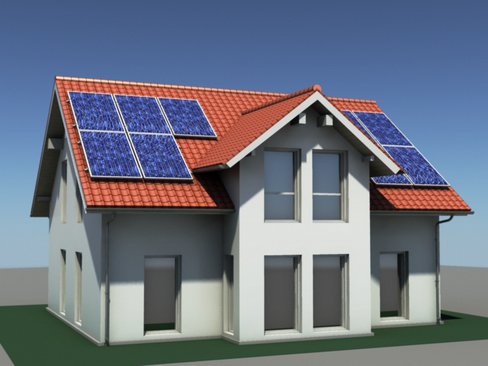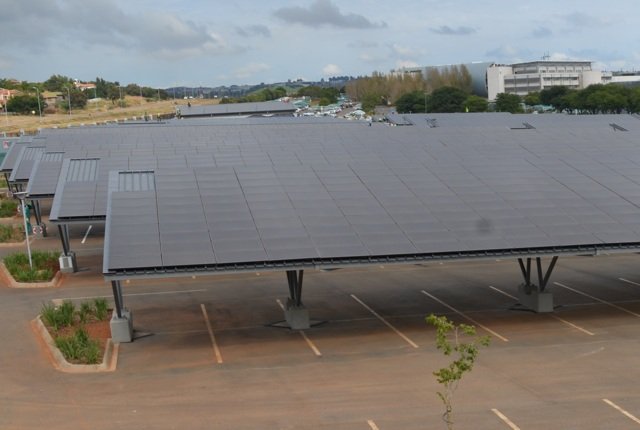Earn 13% per year with these Low Risk, Tax Free, Inflation protected Investments
After factoring in inflation and taxes most investments barely break even. I have discovered an alternative investment strategy that generates tax-free income and automatically keeps pace with inflation. These characteristics make the gains from these investments several times higher than the heavily taxed and inflated investment vehicles you see promoted on CNBC.
There is one source of income that is very real, but never shows up on your taxes. A dollar saved is really a $1.25 earned after taxes. If you were able to produce everything you ever wanted on your own, then you would never pay a dime in taxes. No one is able to produce everything, but there is a way to produce a large part of your needs.
Disclaimer: what follows is my opinion. The powers that be do not permit me to give investment advice. Please make your own decisions and consult with the so-called professionals. I am not responsible for any losses that you incur by investing as described below.
Own your Home

Owning your home earns you a virtual income equal to the rent you would pay to live someplace else. There is no way around needing a place to live. Assume for a moment that your home could be rented for $1500 per month. To get that $1500 you must either sell your time or earn a return on your investments worth $2000 / month or more (before taxes).
Buying a house isn’t cheap. So the question is, will investing $300,000 in stocks and bonds be better than buying your own home? To make this comparison we assume that owning a home costs $600 / month in property taxes, insurance, and maintenance. This means the initial monthly benefit relative to renting is $900 / month. This produces a 3.6% per year rate of return on $300,000. Critically, this rate of return is after taxes, inflation, and depreciation.
If you put your $300,000 into bonds, then you would need to earn at least 3.6% interest to match owning your home. But that will only cover you the first year. Rents are climbing at 4% per year. This means you will need to earn 7.6% to keep up with inflation. Lastly, you will need to earn enough to pay taxes on your gains so this will require bonds paying 9.5%.
What we can conclude from this is that owning your home is the investment equivalent of investing at 9.5% per year. There is one critical difference, the income from owning your home is more or less guaranteed and extremely low-risk compared to the risks you must take to earn 9.5% in the market. Anything paying 9.5% interest will have a very real default rate. Perhaps the clearest example of this is Lending Club. The loans they fund typically pay the lenders 14%, but suffer a 5% default rate and have other fees which result in savers earning just over 8% by making high-risk loans. This shows you how risky it is to seek after 9.5% returns.
Shielded from Inflation
Real estate and rents tend to rise with inflation. There is a constantly growing population looking for places to live that will drive long-term demand. This means that your original capital will likely grow with inflation and the population. All of the calculations above have already factored in the cost to maintain your home (replacing appliances, heating and air, roofing, etc). A well maintained home will not deprecate much.
If the inflation rate were to suddenly rise your home investment would automatically keep up. Meanwhile everyone else investing in stocks and bonds will have to increase their gains and then pay taxes on the extra gains just to keep up. All of this in a market that is likely suffering from the ill effects of inflation.
Produce your own Electricity
When it comes to investments, solar power is one of the most overlooked and under appreciated. A 10 KW solar system can be installed for $30,000 after tax rebates. This system will produce $120 / month worth of electricity. This represents a 4.8% after-tax rate of return on investment. The astute observer will note that this is 33% better investment than owning your own home. Electricity rates have been rising at an average of 3.6% per year which means that each year your solar panels will save you more.
You would have to invest your $30,000 at 13% just to keep up with the return you are getting on your solar investment. Once again, the risk profiles are vastly different. Solar is a very reliable and secure investment, where as anything offering 13% returns is going to be high risk.
If you need to sell your house, then you will likely recover 50% of your original capital. So while the pay-back period is 20 years at todays electric rates, it is much shorter once you factor in the retained value of the panels, the expected inflation rate, and compare it to the after-tax rate of return of alternatives.
Should I Borrow to buy a House or Solar?
At today’s record low interest rates, borrowing money to buy a $300,000 house will cost $800 per month in interest. Critically, a 30-year fixed mortgage locks in todays rates and interest. If you are planning on living in one place for 30 years then this might make sense. However, I would caution anyone from using leverage in this market.
You can refinance an interest rate, but you cannot refinance the principle. If and when interest rates rise it is very possible that real estate prices will have to fall. Falling real estate prices doesn’t usually mean falling rents. If you must sell your house while prices are low then you can lose everything. If you don’t have to sell, then the current market price doesn’t really mean anything to you. You are still getting the benefit of free rent and fixed mortgage payments.
Debt always increases risks. Your best bet is to buy the cheapest home you can and pay it off as quickly as possible. This will allow you to minimize risk and maximize your savings rate.
Downsides
There are a few downsides to buying a home and solar. Perhaps the most significant is the need to make a long-term commitment. The cost of moving could cause you to lose 10% of your capital each time and/or force you to sell at an inopportune price.
Conclusion
When making investment decisions it is wise to consider things you can buy that will save you money before even considering things that will earn you money. These physical assets can generate tax-free income and will appreciate with inflation. Every other investment option out there is burdened by taxes, inflation, and high risks.
LED lights / bulbs are a small but great investment in terms of % saved. They have great ROI, cut down on power bill costs and might also reduce the CAPEX of a solar investment (because you'll need less power).
Most home solar systems are limited to 10K. Beyond this point the utility company starts adding fees and regulations. Building an energy efficient home is a critical part of the broader picture. Even a 10KW system will not produce enough power for the average 4 bedroom home in the US unless the house is very efficient.
A completely self sufficient home in my opinion is the ideal. The ecocapsule is a good start similar to how the Tesla was a good start toward the electronic car.
The ecocapsule is a good investment because it's mobile, it's moderately self sufficient, it's only drawback is it's not cheap. Because of trends in crypto I expect solar generation and other forms of distributed generation will be tokenized and we are beginning to see it with Solarcoin. Distributed generation and self sufficient homes are really one of the only long term paths to economic independence.
The ecocapsule can generate it's own electricity. It can capture and clean it's own water from rain. And can generate from wind. It still needs to be perfected though.
The ecocapsule:
Second video:
Sustainability is key.
The company I work for is busy installing 3MW of solar power to cover roughly 1,800 car ports. Check out this link its got pics of the construction and everything.

http://mybroadband.co.za/news/energy/164662-telkoms-huge-solar-power-plant-photos.html
If you live in certain parts of the US SolarCity is an option. If you qualify they cover the upfront costs, install, maintenance etc.
tl;dr. Summary please?
Buy a home to live in and put solar on it.
Solcarcoin team members join our hangouts at times to talk about some cool things going on in that space. I bet you would find that interesting too :)
Solarcoin! They are really working on something special over there. I'm happy to see someone in the sustainable investment sector!
It costs to maintain a home and a home is a liability not an asset. In addition property taxes in some places are extremely high and most of the homes designed today do not reduce the cost of living. Sure if you can build a self sustaining autonomous home it might make sense, if the home is very reliable so it doesn't need constant maintenance. Problem is most home designs are not that. The closest thing I found to that is the ecocapsule.
I definitely do not want to own my own home until the homes are designed to be self sufficient, reliable, off grid, autonomous, and smart. We are far away from that with the current designs.
I factored in maintenance and taxes worth 40% of rent. You cannot say that's a problem when it's accounted for.
Yes but the loss of liquidity, the opportunity cost? Even if on a dollar basis you get theoretical 13% a year, you also lose mobility and you can't sell your house quickly. Why not just go with REIT? Or even index funds? I guess for me it would not be worth the loss of mobility and also I think the housing prices are still in a bubble so I don't have the faith that I could sell a $300,000 house for more in the future than I paid.
Dividend growth investing for me seems a better fit because I wouldn't have to sacrifice liquidity or mobility to get the same or perhaps better returns. Taxes would still be a bit of a problem though but maybe some politician can lower taxes.
There is opportunity cost with not owning a home.
Liquidity is a matter of price. At the right price you can get liquid in a hurry. There is certainly value in being liquid. On the other hand, most people invest in stocks and bonds through their 401k or IRA which is not really liquid either.
In times of financial crisis your stocks, bonds, and other traditional investments can become illiquid or result in a complete default.
Do you really think those other investments are likely to provide a reliable return during any economic situation? When inflation is high, governments are defaulting, and the world is in chaos nothing is safe.
I think with certain stocks and investment choices if you spread your risk appropriately then you will see growth even during times of recession. Certain stocks performed well even during the 2008 recession when the housing market wasn't doing so well. In addition I don't see anything fundamentally improved about our economy since the collapse of 2008 and expect to see another collapse much worse this time brought on by automation. I expect politicians and low income voters to blame their lost jobs on immigration (illegal immigration) instead of automation and I expect all sorts of instability when the bread and butter job of truck driver is dramatically effected by the self driving vehicle.
Overall stocks perform very well over the decades and if you own the right dividend stocks you can receive income from dividends even during an economic crisis. The dividend payments may not always grow at the same rate because for some years dividend stocks are in fashion and go out of fashion in other years but there are certain companies that aren't going to go away and certain products that people are always likely to buy. Personally I would feel very safe in a carefully inspected diversified portfolio of dividend stocks but I might not feel safe in a $300,000 house in an uncertain economy. It's very much like how some people bought gold to prepare for the last crisis instead of a house and people in 2004 might have wondered why anyone would want to be buying gold but by 2008 it made sense.
I would consider a mobile home but I don't think I will buy a home because I don't think I'll need one. I can always move to where the cost of living is cheaper or expect that rent will go down. If I were going to buy a home eventually then I wouldn't be paying $300,000 but more in the range of the price of a luxury car and I would not buy a home to flip it because I honestly don't believe the housing market can avoid a collapse when I look at how much personal debt Americans have (including college graduates), and I project massive job losses so I don't know where the continued money will come from for people to pay the inflated rent unless there is some kind of basic income.
like Steem Dollars?
